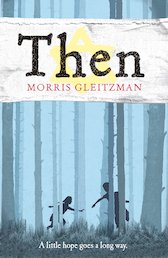

She told him it wasn’t safe, she recalls - yet he talked as if the only protection he needed was her, so that if she didn’t go with him any worrying she did would be her fault. His further decision to serve God in the steaming rainforests of Laos is hard to believe coming from a man, Maggie recalls, who “sat at a desk or in front of a TV all his life.” He is shattered by Maggie’s refusal to accompany him, and when he disappears in those rainforests, she is angry. This quasi-incestuous relationship is complicated by Gordon’s return to his childhood Catholicism later in life. Her mother died giving birth to Maggie, and in compensation for his loss, Gordon ties his daughter tightly to him - he is dismayed when she decides to go to Boston for her college education instead of staying home in Syracuse. But the man who really casts a shadow over her life is her father. In fact, she’s low on his list of priorities. “It was her only success as a teacher.”įletcher is her first lover and through most of the novel she is desperately trying to convince herself that he really cares for her. “The Christmas break was a week away and she still hadn’t wept in front of the students,” McGill writes. Her nervous system is tightly wound - one of her first jobs after graduating from college in Boston is teaching refractory eight-year-olds, a challenge she finds beyond her. We want her to find peace and a degree of happiness. That she is so hard-pressed so much of the time increases reader sympathy. Maggie knows nothing of this - she knows only that her father has disappeared without a trace since his last communication with her from Laos.Įxcept for the brief Laotian interludes, the story belongs to Maggie, and one of the reasons why the novel is successful is that McGill makes of this protagonist a completely credible and engaging heroine. Maggie’s father, Gordon, is a Catholic lay missionary in war-torn Laos, and we catch glimpses of him fleeing with a Laotian man, Yia Pao, and his infant son, from ruthless drug runners.

A sinister, third-world, tropical landscape does figure in the background of the novel, however. McGill conveys something of the flavour of a Paul Theroux novel to this tale, though the main setting is no sinister, third-world, tropical landscape but the genteel tourism and winery district of Niagara-on-the-Lake.

Article contentĮyebrows are raised when Fletcher hires a seasonal worker from Jamaica named George Ray to help harvest the cherries - an arrangement little better than slavery, according to Dmitri, though Ray turns out to be a pillar of sanity and industriousness compared to the commune dwellers. This advertisement has not loaded yet, but your article continues below. Manage Print Subscription / Tax Receipt.


 0 kommentar(er)
0 kommentar(er)
